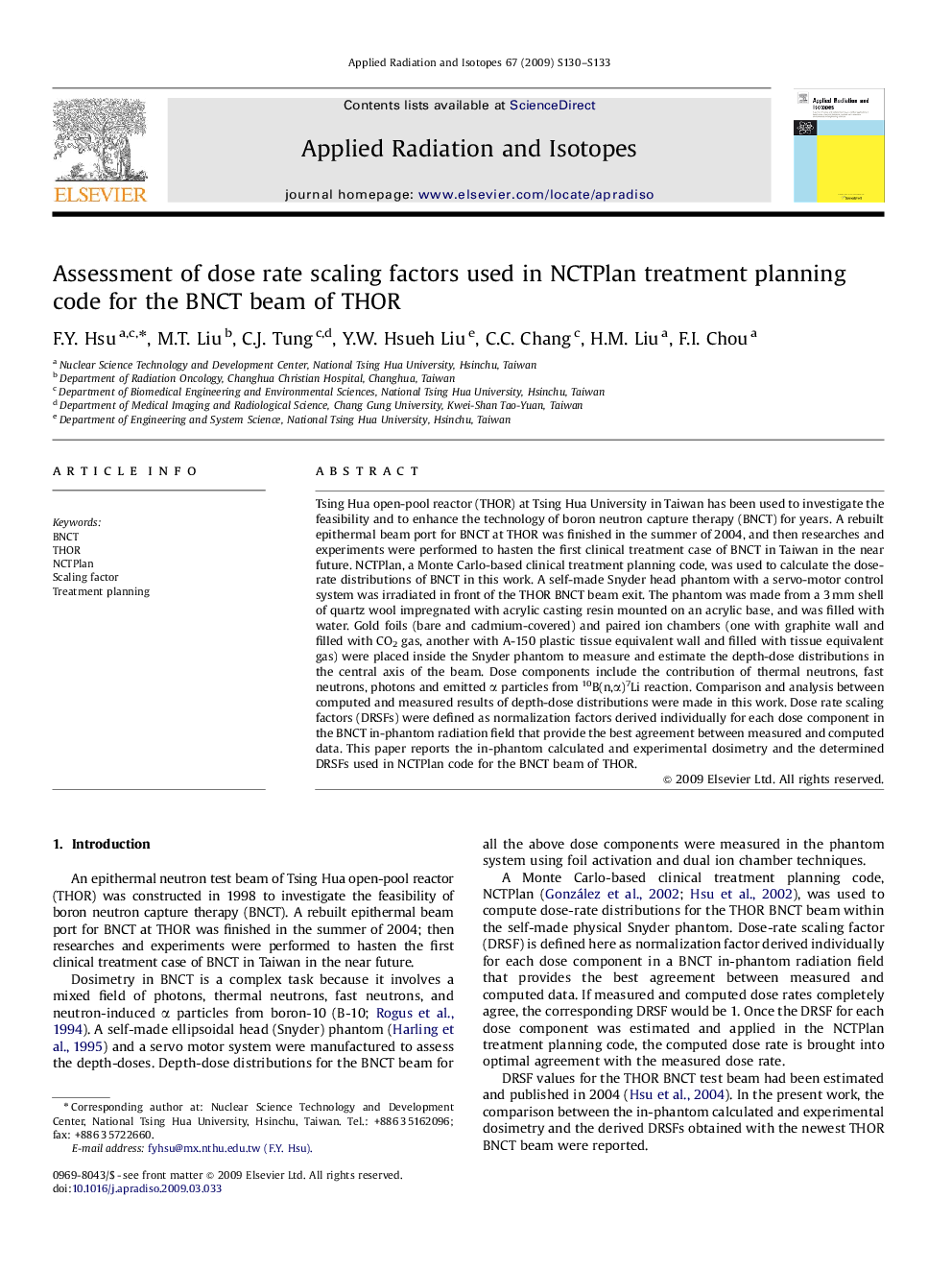| Article ID | Journal | Published Year | Pages | File Type |
|---|---|---|---|---|
| 1876905 | Applied Radiation and Isotopes | 2009 | 4 Pages |
Tsing Hua open-pool reactor (THOR) at Tsing Hua University in Taiwan has been used to investigate the feasibility and to enhance the technology of boron neutron capture therapy (BNCT) for years. A rebuilt epithermal beam port for BNCT at THOR was finished in the summer of 2004, and then researches and experiments were performed to hasten the first clinical treatment case of BNCT in Taiwan in the near future. NCTPlan, a Monte Carlo-based clinical treatment planning code, was used to calculate the dose-rate distributions of BNCT in this work. A self-made Snyder head phantom with a servo-motor control system was irradiated in front of the THOR BNCT beam exit. The phantom was made from a 3 mm shell of quartz wool impregnated with acrylic casting resin mounted on an acrylic base, and was filled with water. Gold foils (bare and cadmium-covered) and paired ion chambers (one with graphite wall and filled with CO2 gas, another with A-150 plastic tissue equivalent wall and filled with tissue equivalent gas) were placed inside the Snyder phantom to measure and estimate the depth-dose distributions in the central axis of the beam. Dose components include the contribution of thermal neutrons, fast neutrons, photons and emitted α particles from 10B(n,α)7Li reaction. Comparison and analysis between computed and measured results of depth-dose distributions were made in this work. Dose rate scaling factors (DRSFs) were defined as normalization factors derived individually for each dose component in the BNCT in-phantom radiation field that provide the best agreement between measured and computed data. This paper reports the in-phantom calculated and experimental dosimetry and the determined DRSFs used in NCTPlan code for the BNCT beam of THOR.
